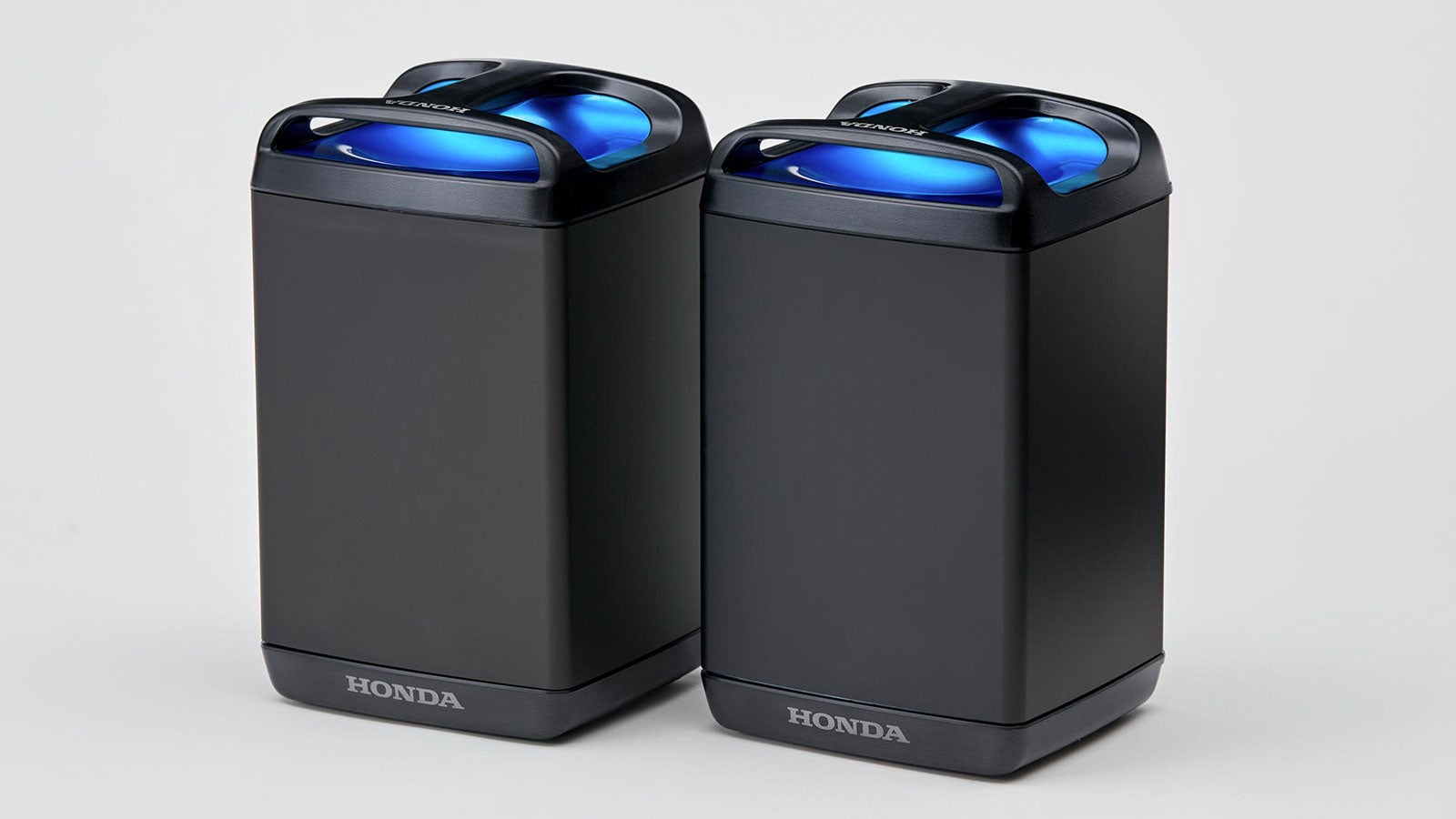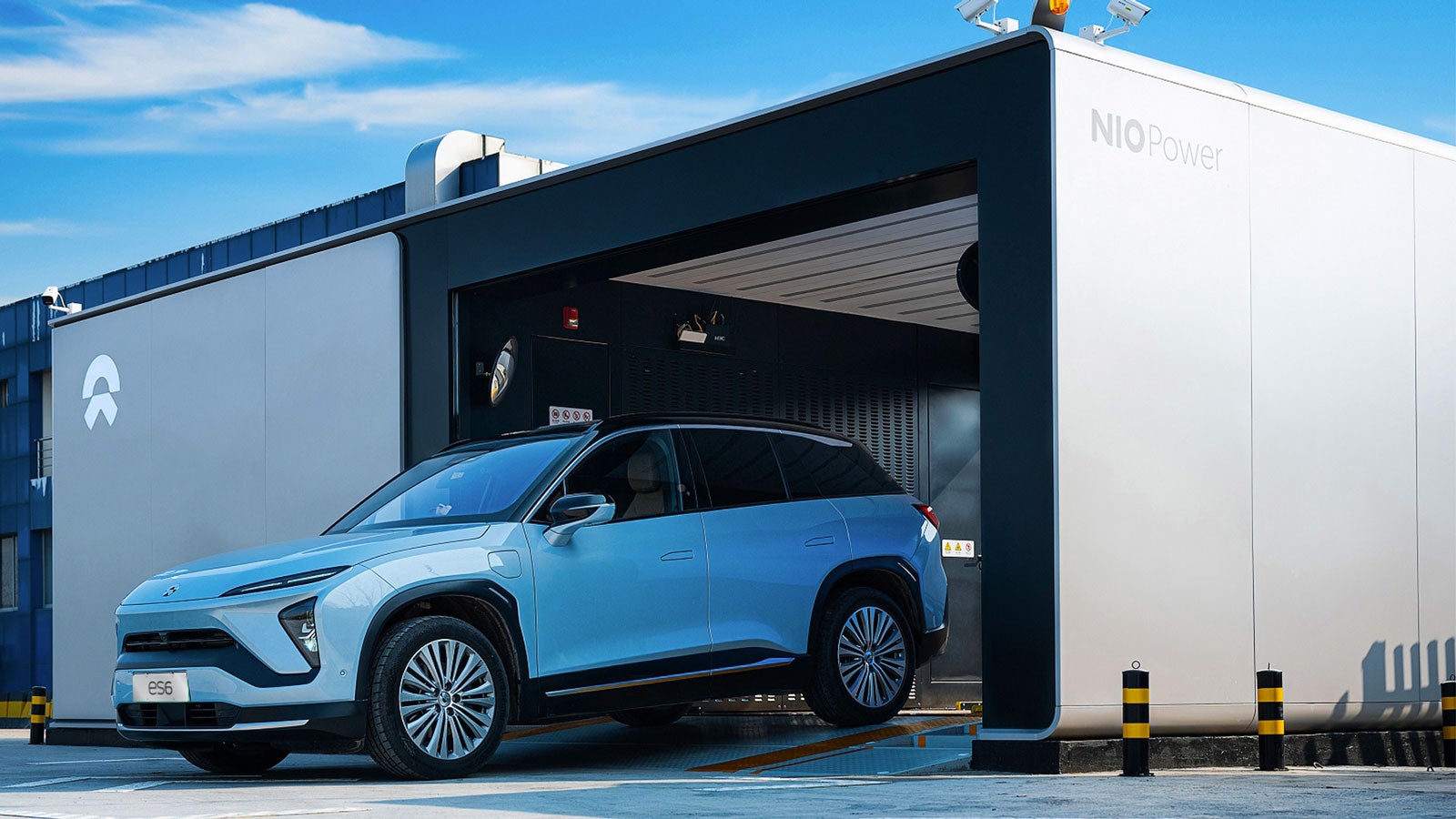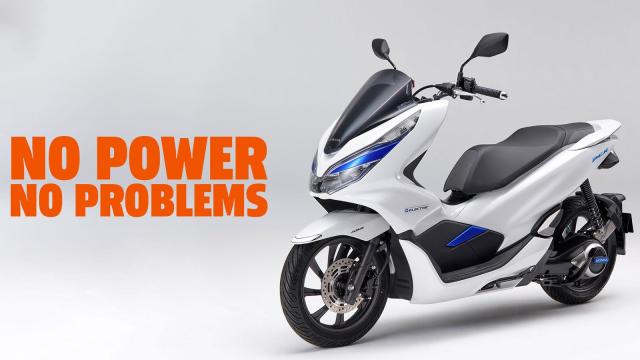You know what they say about team work, right? Well, it makes the dream work. And, if your dream is swappable batteries in your swanky Japanese motorbike, then I’ve got great news for you: Japan’s four biggest bike makers — Honda, Yamaha, Kawasaki and Suzuki — have come together to finally make battery sharing work.
The big four have been talking about their plans for battery sharing tech for a while now. In fact, they first started working together in 2019 when they announced their ambitions to develop swappable electric vehicle batteries and other “associated technology.”
Then, last year, the four bike makers agreed on a standard that their batteries would all meet, which they said would make it easier for customers when they came to switch out their power packs.
And last year, Honda became the first of the four to debut its own swappable batteries, dubbed the Mobile Power Pack e.

With one power pack in production, the four bike makers have again stepped out into the limelight to share their next step in the quest to make swappable batteries work. They are forming a new, joint company.
Called Gachaco, the new firm has been formed in partnership with fuel giant Eneos. Its mission is to provide a sharing service for standardised, swappable batteries for electric motorbike riders.
It will launch on April 1st and aims to create a “battery as a service” platform, or BaaS for short. By viewing batteries as a service, rather than a product, Gachaco claims it will be able to find solutions to some of the problems impacting EVs, namely long charging times and concerns about running out of power.
Once the company launches, it will begin working towards its goal of rolling out a battery sharing service in major Japanese cities by autumn 2022. The service will initially work with Honda’s Mobile Power Pack e.
It sounds like the perfect solution. You’re driving along, and a warning light flashes on to say you’re almost out of power. No worries, you can pop into a battery sharing station, pull out your flat battery and replace it with a fully charged one in mere minutes. Then, you’re back on the road.

It’s a dream shared by Chinese electric vehicle maker NIO, which has begun rolling out a similar service for drivers of its cars in recent weeks. But, where NIO’s offering is almost the company’s USP, as it is exclusive to its cars, the four Japanese bike makers want it to be a more universal offering.
This, they say, will help create a “recycling-oriented society” as each battery pack can be used countless times by a huge number of individuals.
It’s a pretty neat idea, and one I’d definitely like to see spread around the world. But it does rely on even more automakers agreeing to standardize parts and components.
And things brings to mind the ongoing phone charging cable debacle. While every phone maker in the world can agree on USB-C chargers, there will always be one left out in the cold with their own proprietary port.
Personally, I can’t see the car world being any more likely to play nice than big tech. In fact, I bet there are at least a handful of Apple-esque companies that will put profits ahead of cutting their environmental impact and improving the customer experience.
